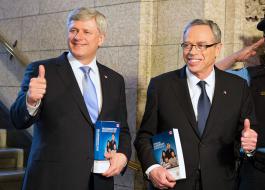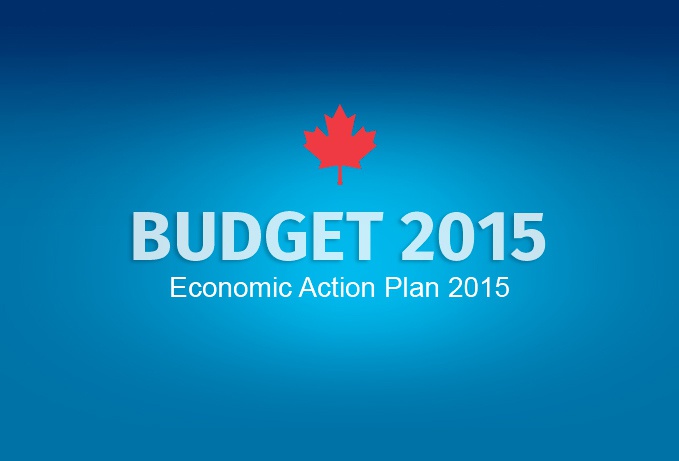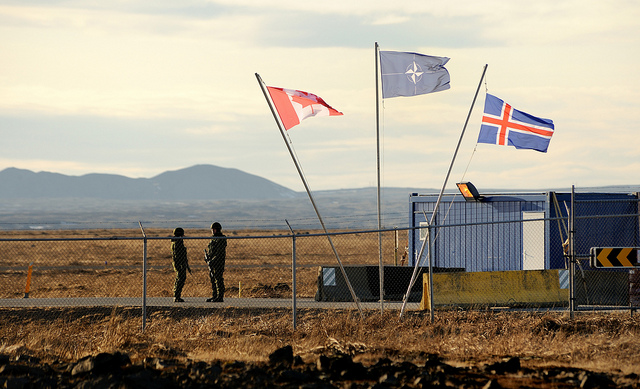On April 21, the Department of Finance released the Federal Government’s 2015 Budget. The document addressed a number of different themes and reiterated the Federal Government’s continued commitment to balanced budgets. In his speech introducing the Budget, Finance Minister Joe Oliver identified defence spending as one of the government’s key policy priorities. Oliver announced that the Federal Government would “increase the annual escalator for National Defence’s budget to 3% starting in 2017-18.” As a result of this investment, Oliver calculated that “spending on Canada’s military will increase by $11.8 billion over 10 years.”
The 2015 Budget also focused on the Department of National Defence’s (DND) more immediate priorities. Recognizing the considerable costs of overseas military deployments, the Budget committed to providing “National Defence with up to $360.3 million in new funding for the Canadian Armed Forces to extend its mission by 12 months as part of the international coalition’s ongoing efforts to combat ISIS.” In addition, the Budget also designated $7.1 million in the 2015-2016 fiscal year for the Canadian Armed Forces (CAF) training mission in Ukraine. To assist with upgrading the security at bases across Canada, the Budget included “$23 million over four years on a cash basis.”

A recent policy update by the Canadian Defence and Foreign Affairs Institute (CDFAI) examined the proposed increase in defence spending. It concluded that the increase in short-term operational funding “is much needed, given the cuts to the defence budget in recent years which have targeted DND’s operating funds.” As CDFAI Senior Analyst David Perry noted, the new operational funding indicates a renewed focus on “topping up DND’s baseline budget to compensate for additional operational expenses.”
Despite the 2015 Budget’s proposed increase in defence funding, critics have argued that the increase in defence funding falls far short of what is required. For example, the new long-term funding will only begin after the next Federal election and even then “will only increase by $184 million” in the first year. The Ottawa Citizen analyzed the 2015 Budget and concluded that “it will take until 2021 for the budget to grow by $1 billion under the new model.” The defence spending will increase even further by the mid-2020s. According to a CDFAI report, “the government expects the military’s budget to have increased by $2.3 billion in 2026.” However, the Ottawa Citizen estimated that even at its peak, the new defence spending “would need to increase by $3 billion to return it to pre-deficit levels.”
Unfortunately, the 2015 Budget does little to address the reduction caused by DND cutbacks in recent years. The CDFAI report stated that “the pledged $11.8 billion will only restore about one quarter of the money that was removed from National Defence during deficit reduction.” In addition, reductions in operational spending and deferment of procurement projects has resulted in DND being roughly $4 billion short “when compared with the proposals in the 2008 Canada First Defence Strategy. As a consequence, it was estimated that austerity “measures stripped away roughly $45 billion in defence funds through 2026/2027.”
It is important to recognize that much of the defence spending in the Federal budget will only begin after the 2015 Federal Election. As two economists noted recently, much of the proposed spending in the 2015 Budget “may never happen, no matter who wins the election.” A recent Canadian International Council (CIC) article argued that the timing of the budget escalator increase would make “it entirely discretionary as to whether the future government keeps that promise.” The article’s author, David McDonough, had a sober warning for the Federal Government. In his view, the 2015 Federal Budget failed to provided DND with an “immediate and sizable infusion of resources.”
The 2015 Budget appears to have created a very difficult dilemma for the Canadian Armed Forces. On one hand, the Government has committed to a number of major procurement projects in the coming years. On the other hand, it has significantly reduced defence spending in recent Budgets. As a result, the Government could be creating major future problems by undertaking an “ambitious procurement plan at a time when the defence budget is being gradually eroded.”




